Table of Contents
ToggleIntroduction
Curious about the secret sauce that propels websites to the top of Google Search results? It’s all about mastering the “role of keywords” in SEO.
Understanding the role of keywords is like holding the key to a treasure chest in the digital world. It’s not just about stuffing your content with high Search Volume terms; it’s about strategically placing the right words in the right places.
In this ultimate guide, we’ll dive deep into the intricacies of keyword research, SEO strategy, and how you can optimize your website for Google Search and other search engines.
Whether you’re a beginner or an SEO veteran, this guide offers valuable insights and actionable tips to elevate your SEO game. Stick around, and you’ll discover how Anfinit Technologies can help you achieve your SEO goals.
Unlocking the Mystery: What Are Keywords?
When it comes to SEO, the term “keywords” often takes center stage. But what exactly are keywords, and why do they hold such a pivotal role in SEO?
In this section, we’ll demystify the concept of keywords, explore their different types, and understand how they serve as a bridge between your SEO efforts and your target audience.
Types of Keywords
- Short-Tail Keywords: These are broad and generic terms, often composed of one or two words. While they have a high search volume, they also come with fierce competition.
- Long-Tail Keywords: These are more specific phrases that usually consist of three or more words. They may have a lower search volume but offer higher conversion rates.
- Mid-Tail Keywords: A middle-ground between short-tail and long-tail keywords, these terms offer a balance between search volume and specificity.
The Bridge to Your Audience
Keywords aren’t just technical jargon; they’re the language your audience uses to find you. By understanding the search intent behind different keywords, you can tailor your content to meet the needs of your target audience effectively.
Keywords are the building blocks of your SEO strategy. Choose them wisely!
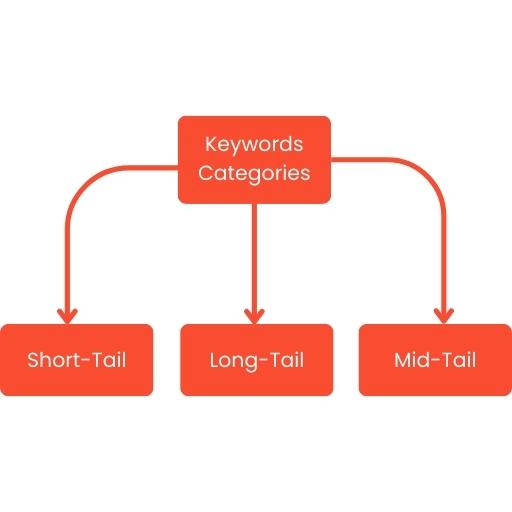
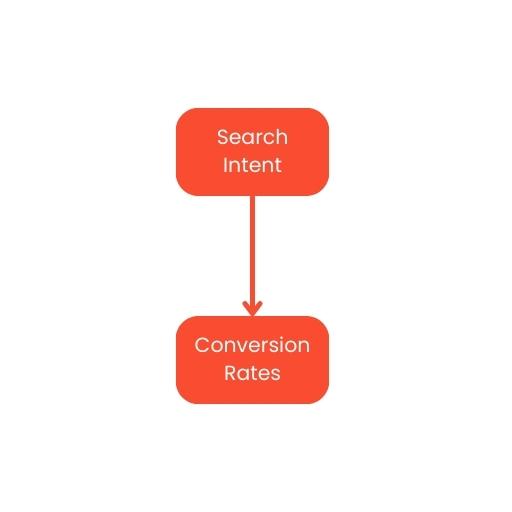
The Evolution of Keywords in SEO: More Than Just Meta Tags
The role of keywords in SEO has undergone a significant transformation over the years. Gone are the days when stuffing your meta tags with keywords could skyrocket your website to the top of search engine results. In today’s SEO landscape, it’s all about relevance, quality, and meeting the user’s search intent.
From Meta Keywords to Smarter Algorithms
In the early days of SEO, meta keywords were the go-to strategy for ranking higher. However, search engines like Google have evolved, employing smarter algorithms that prioritize content quality over keyword density.
The Shift to Relevance and Quality
Search engines now focus on delivering the most relevant and high-quality content to users. This shift means that your SEO strategy needs to be more nuanced, focusing not just on keyword density but also on keyword relevance and content quality.
We once worked with a client who was obsessed with keyword density. Despite ranking well, their conversion rates were abysmal. It was only after shifting the focus to keyword relevance and quality content that they saw a significant improvement.
The Role of Google Search Console
Google Search Console has become an invaluable tool for understanding how your keywords are performing. It provides insights into search volume, and click-through rates, and even helps you identify new keyword opportunities.
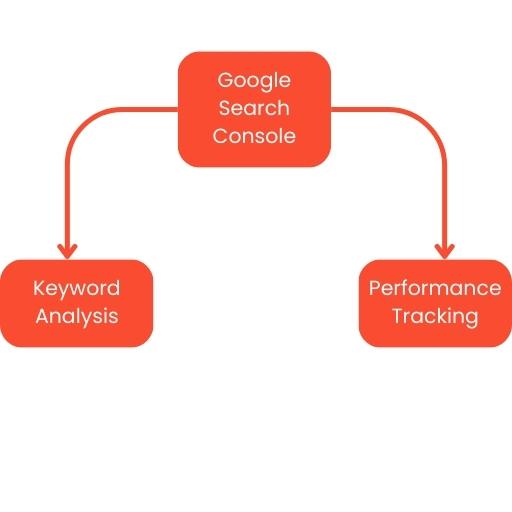
The Cornerstone of SEO: Why Are Keywords Important?
So, you’ve got a grasp on what keywords are and how they’ve evolved. But why are they so indispensable in the realm of SEO? In this section, we’ll explore the multifaceted role of keywords in driving organic traffic, improving SERP rankings, and enhancing conversion rates.
Driving Organic Traffic
One of the primary roles of keywords is to drive organic traffic to your website. By optimizing your content with relevant keywords, you increase the likelihood of appearing in Google Search results, thereby attracting more visitors.
SERP Rankings
Keywords are the backbone of your SERP (Search Engine Results Page) rankings. The better you optimize your content with high-quality keywords, the higher your pages will rank, leading to more visibility and clicks.
Conversion Rates
It’s not just about driving traffic; it’s about driving the right traffic. By understanding the search intent behind your keywords, you can tailor your content to meet the specific needs of your audience, thereby increasing conversion rates.
Relevance Over Quantity
In the modern SEO landscape, it’s not about how many keywords you can cram into your content. It’s about selecting the most relevant keywords that align with your audience’s needs and search intent.
According to a study by Ahrefs, 90% of web pages get no organic search traffic from Google. This statistic highlights the importance of keyword optimization for gaining visibility.
So it’s not wrong to say that keywords are your roadmap to higher search engine rankings and better conversion rates.
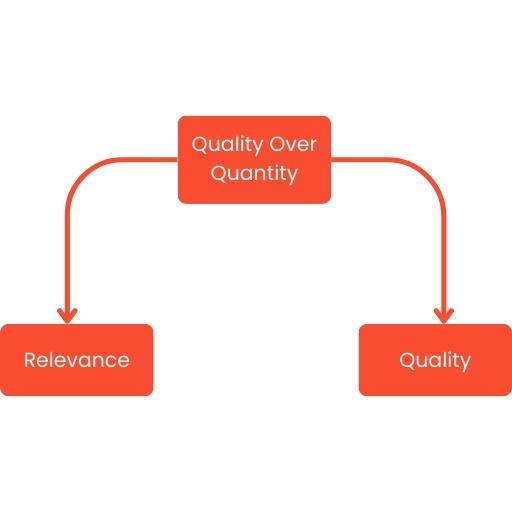

The Art and Science of Keyword Research
By now, you understand the pivotal role of keywords in SEO. But how do you go about finding the right keywords for your website? Welcome to the world of keyword research, a blend of art and science that can significantly impact your SEO success.
Brainstorming Keyword Ideas
Before diving into any tools, start by brainstorming. Think about the terms your target audience might use to find your products or services. Make a list and use it as a starting point for your research.
Approach your friends and family, and ask them how they will search for the term you are trying to rank for. This will introduce you to the lingo everyone uses related to your topic.
Utilizing Keyword Research Tools
There are various tools available for keyword research, such as Google Keyword Planner, SEMrush, and Ahrefs. These tools provide valuable insights into search volume, keyword difficulty, and even your competitors’ keyword strategies.
Analyzing Competitors
Don’t underestimate the power of competitor analysis. By studying the keywords your competitors are ranking for, you can identify gaps in your own strategy and find new opportunities.
Understanding Your Target Audience
Knowing your target audience is crucial. It helps you understand the search intent behind the keywords, allowing you to tailor your content more effectively.
Search engine land says that 70% of search queries contain long-tail keywords. This emphasizes the importance of focusing not just on high-volume keywords but also on long-tail variations that can drive targeted traffic.
Keyword research isn’t just a task; it’s a strategic process that can make or break your SEO efforts.
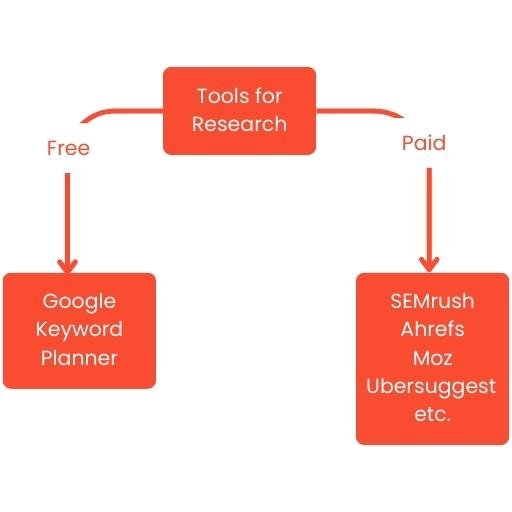
The Local Angle: Why Local SEO Matters
While general SEO aims to improve your website’s visibility on a global scale, Local SEO focuses on optimizing your site for a specific geographic location. But why is Local SEO important, and how does it fit into the broader role of keywords in your SEO strategy?
Local SEO is your ticket to dominating local search results and attracting customers right in your backyard.
The Importance of Local Keywords
Local keywords often include geographic terms, such as the name of a city or neighborhood. By optimizing your website with local keywords, you can attract more targeted traffic and improve your local search rankings. Ex – car repair Austin Texas.
Google My Business and Local SEO
One of the key components of a successful Local SEO strategy is setting up and optimizing your Google My Business account. This platform allows you to provide essential business information and interact with customers in your local area.
Your customers can rate you which will increase your credibility among local searchers.
Local SEO vs. General SEO
While general SEO focuses on broader keywords and a global audience, Local SEO targets specific geographic areas. The strategies may differ, but the underlying principle remains the same: use relevant keywords to connect with your target audience.
A local coaching center client of Anfinit Technologies was struggling with online visibility. After optimizing their Google My Business account and focusing on local keywords, they saw a 30% increase in foot traffic within a month.
Mastering Keyword Usage: More Than Just Placement
You’ve done the research and have a list of keywords, but what’s next? How do you effectively incorporate these keywords into your content? In this section, we’ll explore the art of keyword placement, the concept of keyword density, and the importance of avoiding keyword stuffing.
Keyword Placement: Where It Matters
Keywords should be strategically placed in various parts of your content, including:
- Title
- Meta Descriptions
- URLs
- Headers (H1, H2, H3)
- Body Content
The Myth of Keyword Density
While keyword density was once a significant factor in SEO, it’s no longer the end-all-be-all. Search engines now prioritize content quality and relevance over the sheer number of keywords.
Long-Tail Keywords: The Untapped Goldmine
Long-tail keywords are specific phrases that can drive targeted traffic to your site. While they may have lower search volume, they often result in higher conversion rates.
Avoiding Keyword Stuffing
Keyword stuffing is the practice of overloading your content with keywords, which can lead to penalties from search engines. Always aim for natural, meaningful usage of keywords in your content.
Effective keyword usage is a balancing act between placement, density, and relevance. Make sure to include keywords naturally in your content.
Beyond Keywords: Advanced SEO Strategies
Keywords are the foundation of your SEO strategy, but what comes next? In this section, we’ll explore advanced SEO techniques that can give you an edge over your competitors. These strategies go beyond mere keyword usage and delve into the technical aspects of SEO.
Advanced SEO is about fine-tuning your strategy to adapt to ever-changing algorithms and user behaviors. Without these strategies, it’s hard to get to the top of SERPs.
The Importance of Technical SEO
Technical SEO involves optimizing the backend of your website to improve its performance and visibility. This includes aspects like
- Site speed
- Mobile-friendliness
- Structured data
Utilizing Google Search Console for Advanced Insights
Google Search Console isn’t just for keyword tracking; it’s a treasure trove of advanced SEO insights. From identifying crawl errors to monitoring backlinks, this tool is indispensable for any serious SEO professional.
Social Media and SEO: The Unlikely Allies
While social media may not directly impact your SEO, it plays a crucial role in driving traffic and increasing engagement. Platforms like Facebook, Twitter, and LinkedIn can amplify your content’s reach and contribute to your overall SEO strategy.
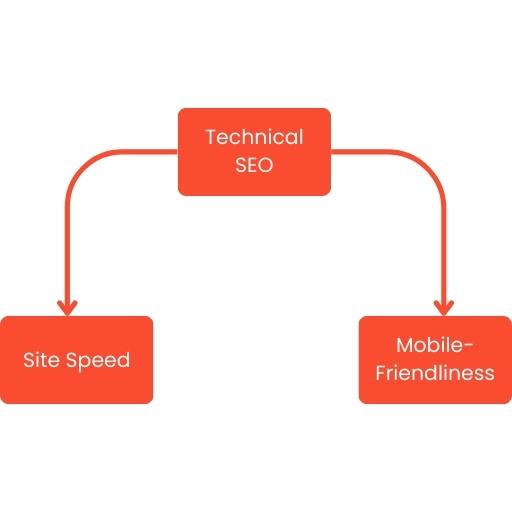
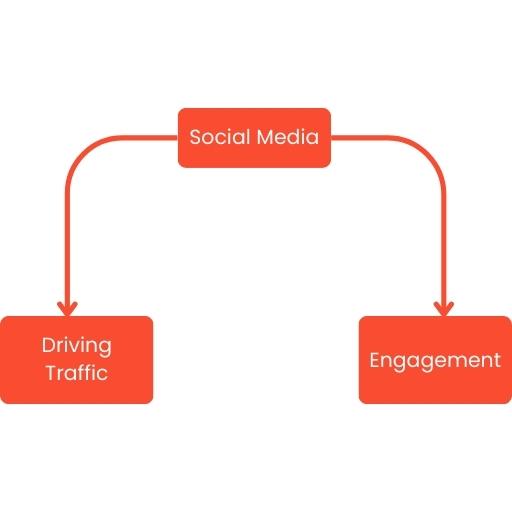
Measuring Success: How to Track Your SEO Efforts
So you’ve implemented your SEO strategy, but how do you know if it’s working? In this section, we’ll discuss the key metrics you should be tracking to measure the success of your SEO efforts.
Key Metrics to Track
You can’t improve what you can’t measure. Tracking your SEO metrics is crucial for long-term success.
- Organic Traffic: The number of visitors coming to your site through search engines.
- Conversion Rate: The percentage of visitors who take a desired action, such as making a purchase or signing up for a newsletter.
- Bounce Rate: The percentage of visitors who leave your site after viewing only one page.
Tools for Tracking SEO Metrics
There are various tools available to help you track these metrics, including Google Analytics, SEMrush, and Moz. These platforms provide comprehensive data that can help you fine-tune your SEO strategy.
The Role of Google Analytics
Google Analytics is an invaluable tool for any SEO professional. It provides insights into user behavior, traffic sources, and much more, allowing you to make data-driven decisions.
Anfinit Technologies uses Google Analytics to track the success of our clients’ SEO campaigns. One client saw a 50% increase in organic traffic within six months, validating the effectiveness of our SEO strategies.

The Future of SEO: What Lies Ahead
SEO is a dynamic field that never stands still. As we look to the future, it’s essential to understand the emerging trends and how they will impact the role of keywords in your SEO strategy.
Voice Search and Keywords
With the rise of voice-activated devices like Google Home and Amazon Alexa, voice search is becoming increasingly important. This trend will likely influence the types of keywords that are effective, leaning towards more natural language phrases.
AI and Machine Learning
Search engines are increasingly using AI and machine learning to understand user intent better. This development means that the role of keywords may evolve to become even more nuanced and context-specific.
Mobile-First Indexing
As more people use mobile devices to access the internet, search engines are prioritizing mobile-friendly websites. This shift will impact how keywords are used and optimized for mobile search.
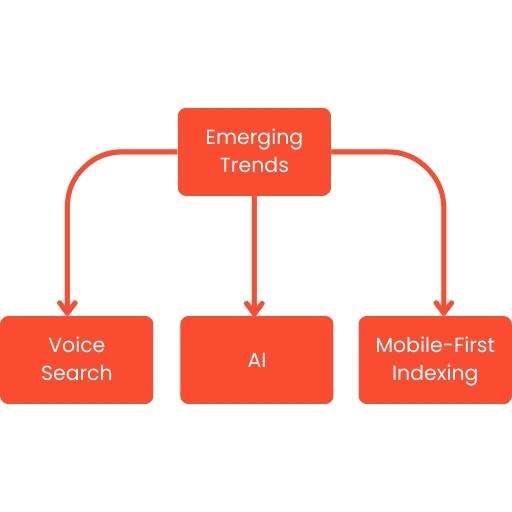
Conclusion: Your Roadmap to SEO Success
Mastering the role of keywords in SEO is a journey, not a destination. Keep learning, adapting, and optimizing for success.
We’ve covered a lot of ground in this comprehensive guide, from understanding the basic role of keywords in SEO to exploring advanced strategies and future trends. The key takeaway is that keywords are not just a set of words to sprinkle throughout your content; they are the cornerstone of your SEO strategy.
Actionable Insights
- Start with Research: Before diving into any SEO strategy, invest time in keyword research to understand your target audience and their search intent.
- Measure and Adapt: Use tools like Google Analytics to track your performance and make data-driven decisions.
- Stay Updated: The world of SEO is ever-changing. Keep an eye on emerging trends and adapt your strategies accordingly.
- Consult the Experts: If you’re feeling overwhelmed, consider seeking professional help. Anfinit Technologies can provide valuable insights and tailored solutions to help you achieve your SEO goals.




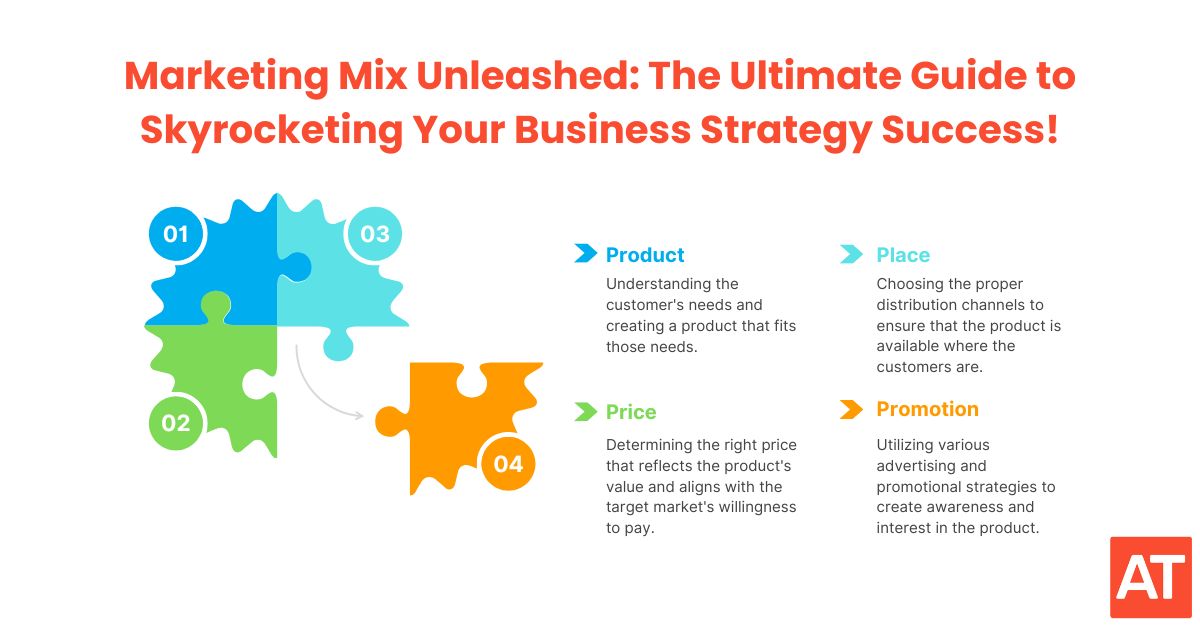



This Post Has One Comment
Pingback: SEO Strategy for Small Businesses: A Comprehensive Guide - Anfinit Technologies